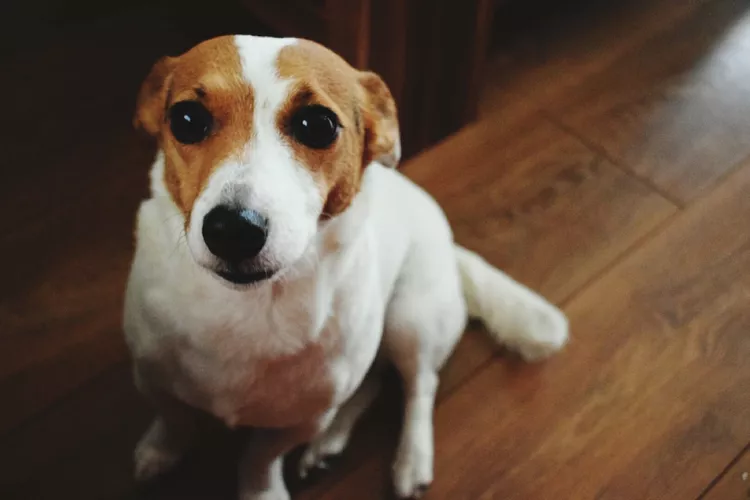Why Is My Dog Scooting Across the Floor?

When a pet owner notices their dog scooting across the carpet, that is sometimes the first sign of a medical issue. Scooting may be seen when a dog has intestinal parasites or when they have allergies. But another common reason is when their anal glands need to be addressed. Here we will discuss what anal glands are, causes and treatments of anal gland impaction, and ways to prevent anal gland issues.
Why Do Dogs Scoot Across the Floor?
When dogs are seen licking and scooting their rear end across the floor, this may be an indication that they are unable to express their anal glands. Anal glands, also known as anal sacs, are located just inside of a dog’s anus. The material secreted into these pea-sized glands is thick, oily, and foul-smelling. Most wild animals are able to empty these glands voluntarily for scent marking or in self-defense. Domestic animals, on the other hand, have mostly lost this ability. Under normal circumstances, dogs can empty their anal glands while walking and/or defecating. In most cases, owners aren't even aware their dog has emptied their anal glands. A veterinarian will determine if the scooting is due to an anal gland issue and will provide the proper treatment.
Simple Anal Gland Impaction
When a dog is seen licking its rear and scooting across the floor for the first time, this might be quite worrisome. Sometimes a dog is just experiencing a simple anal gland impaction in which they are unable to express the glands on their own. A veterinarian or a member of their team will manually express the glands. In this case, no further treatment may be necessary, however, if the problem persists, another visit and discussion with the vet may be warranted.
Anal Gland Infection
When an anal gland impaction is left untreated, they can become abscessed or infected. A dog experiencing this problem may be seen licking or scooting. But owners may also note their pet is just not acting themselves. They may be seen shivering, hiding, or maybe just having a tough time sitting down. A trip to the vet will confirm that an abscess is present. One or both of the anal glands are difficult to express and the material is thick or pus-like in appearance. A bloody foul-smelling discharge may be noted as well. When it reaches this point, treatment is more involved. Manual expression, antibiotics, and an Elizabethan collar (to prevent licking and biting of the infected area) may be necessary. If the dog appears to be in pain, medication may be sent home to offer relief.
Anal Gland Rupture
An anal gland rupture occurs when one or more abscessed anal glands are completely full and thus causing them to burst. A draining tract will form outside of the skin. Owners may notice similar signs as seen with impaction and infection, however, they may also see and smell a pungent, usually bloody, pus-like discharge coming from the dog's rear end. Once it is determined that an anal gland rupture has occurred, the affected anal gland(s) will need to be flushed (sometimes this has to be done under anesthesia if they are in a lot of pain) and antibiotics may be infused into the affected anal gland. Pain medication and an Elizabethan collar (to prevent licking and biting of the infected area) may be necessary. Both anal gland infections and ruptures will require follow up visits.
What to Do If Your Dog Is Scooting Across the Floor
If you notice your dog scooting across the floor suddenly, you should contact your veterinarian so they can help determine the cause as soon as possible.
Treatment & Prevention
Treatment will depend on the cause and could include manual expression, antibiotics, or wearing a collar. Some dogs never experience problems with their anal glands, while others may have to come to their vet’s office every few weeks to have them expressed. In this case, adding more fiber to the diet may be an option. This may be in the form of a high fiber diet or fiber supplements. Probiotics may also be helpful. A veterinarian will help decide which option is best. If anal gland issues are still present despite trying recommended treatments, an anal sacculectomy may be suggested. Complications are possible, so speak with a veterinarian to discuss this before a final decision is made.
References:
Brooks, DVM, DABVP, Wendy. "Emptying A Dog's Anal Sacs - Veterinary Partner - VIN". Veterinarypartner.Vin.Com, 2019, https://veterinarypartner.vin.com/default.aspx?pid=19239&id=4951501.